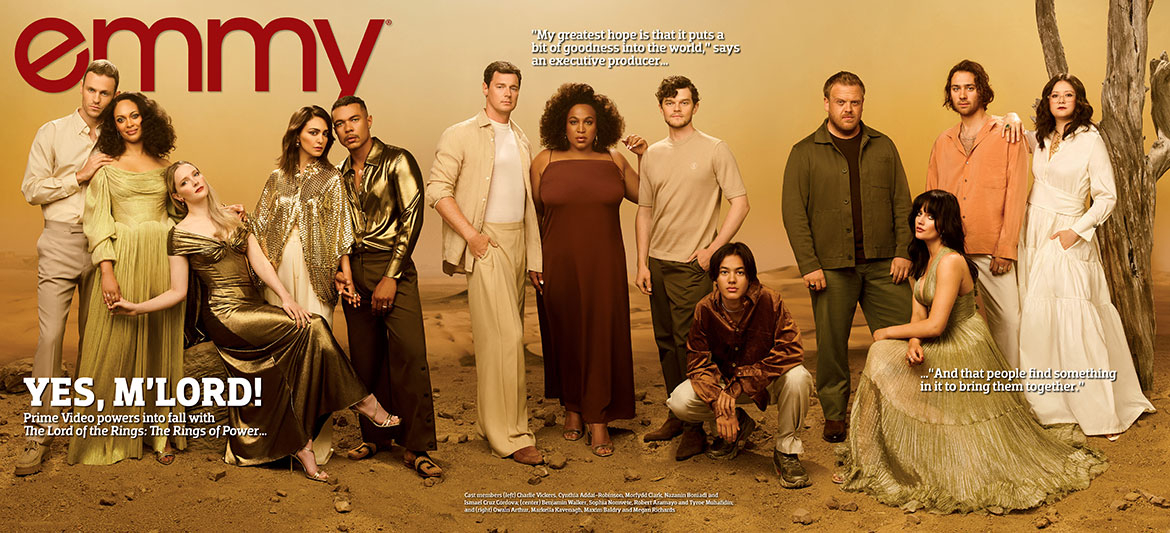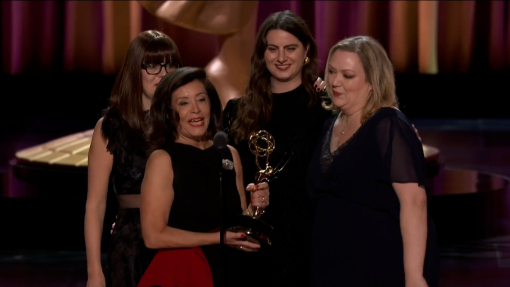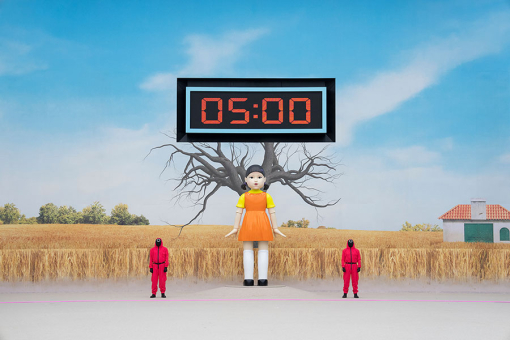Few shows in TV history have been more anticipated, pored over and pre-judged than Amazon Studios' The Lord of the Rings: The Rings of Power, which launched its eight-episode debut season on Prime Video September 2. That is what happens when a relatively new entrant to the television business spends what is reportedly the most money ever on one of the best- known literary adaptations in the history of fiction: everyone from Elves to Ents (talking trees) has an opinion.
Amid all the hullabaloo, coshowrunner Patrick McKay did what every good boy should always do. He listened to his mother.
"There are people who have never come across Lord of the Rings at all. My mother is one of them," he says. "And this is a really important point — this show is for them, too. If you've never seen the Lord of the Rings film, if you've never heard of The Lord of the Rings... for people who — again, like my mother — don't get it and have never gotten it, we've strived in every moment to create real human drama that's relatable. The show is definitely for you, too."
It's an important point, because The Lord of the Rings and the world of Middle-earth are among the original alternate-world, fan-boy deep dives. Author J.R.R. Tolkien wrote many thousands of pages filled with esoteric lore, fictional bloodlines and imagined history in the course of creating Middle-earth. Peter Jackson's three Lord of the Rings films and three further Hobbit adaptations only widened the audience and deepened the mythology. That's one reason Amazon bought the rights to make a TV adaptation (for a rumored $250 million) — the IP came with a very dedicated fan base.
But for McKay and his longtime writing partner and fellow showrunner, JD Payne, it made the job an epic undertaking in its own right: they somehow had to tell a story for everyone, newbies as much as megafans, your best friend as much as your mother.
Payne and McKay are Tolkien megafans, but when Amazon was looking for writers, that wasn't unusual.
"They were out to fifty-odd writers," Payne says. "It was huge, like everyone in town." JJ Abrams — with whom Payne and McKay had worked on Star Trek Beyond — had suggested they pitch.
"We thought, 'There's no way that they'll ever hire us,'" Payne says. "There are people with far bigger résumés that make more sense on paper. But you can't not pitch when the opportunity to do your absolute dream job comes along."
Their approach to the story was cinematic in scope. Payne and McKay had worked together for nearly twenty-five years, but primarily on tentpole feature films in uncredited roles. They did big movies well, working not only on Star Trek Beyond but Godzilla vs. Kong and Jungle Cruise.
"We come from the world of movies," McKay says. "We don't come from the world of TV. Part of the excitement here was, we had this notion — and Amazon had the same notion — of doing something that is bigger than even the big premium streaming series, something that's in-between a huge blockbuster film and a big, prestige series. It was quite a risk for them to hire us and then also to say yes to something of that enormous scope and ambition. But it was the right kind of scary, I think, for us and for them."
What Payne and McKay pitched was an epic fifty hours of television. But if that sounds like a lot, it's a tiny fraction of what Tolkien dreamt up in his novels.
"We started trawling through the literally 10,000 years of history to which Amazon had bought the rights," Payne recalls. They landed on one period known as the Second Age, because it had been hinted at and alluded to in several of the books, but never dramatized for the screen. It contains the story of the forging of the Rings of Power, the rise of the Dark Lord Sauron, the fall of the kingdom of Númenor and then the last alliance of Elves and Men to fight Sauron.
"We said if we could do those four stories over fifty hours of television, they can involve Elves and Dwarves and the precursors to Halflings [Hobbits] and the greatest of Men and the lowest of Men, and all these crazy creatures — all the best stuff from Tolkien in this heretofore untold epic," McKay says. "We basically pitched that to Amazon, and the pool of potential writers went from fifty to thirty to twenty to three. Then one day, they called us and said, 'You've got the job, and your life is divided into everything that came before and everything that came after.' It's been a whirlwind wild ride for four-and-a-half years ever since."
Executive producer Lindsey Weber has been along for the ride. She was running the film department at Abrams's Bad Robot Productions and had worked with Payne and McKay on 2016's Star Trek Beyond.
"JD and Patrick wound up pitching on this, and I was rooting for them from the sidelines," she says. "On the one hand, because I knew what brilliant storytellers they are, and on the other hand, because I was kind of hoping that I would still be able to work with them! And then, of course, they won the day and I was thrilled for them. It wasn't until a while later that they came along and asked me to run away and join the fellowship."
The production was huge — the ambition likewise — but it remained achievable, Weber says, because Payne and McKay stuck closely to their original premise.
"From the pitch to what they wrote to what we shot and edited... it's the same story. Unfortunately that's pretty rare, but that clarity makes the job a lot easier. Because you can then communicate it to all your crew members and your actors. The job becomes about how do you make the creative the best thing it can be, as opposed to solving the chaos that results when you don't have that clarity."
When it came to peopling their world, the approach to casting was to focus less on big names and more on what McKay describes as an innate "Middle-earthiness."
Payne says: "In some ways, Middle-earth and Tolkien are the stars. That sort of liberated us, though it's always about finding the best person for the role."
In casting, they set out two qualifications. First, obviously, the actor had to be an excellent performer. Viewers were going to be asked to spend fifty-plus hours with these characters, so actors had to have the chops to make their characters compelling.
But they were looking for something else, too. Something ineffable. "They have to have Middle-earth in them," Payne says. "You look in their eyes, you hear them speak and you just know. I remember with one character I was doing a Zoom, like we are now, and Patrick was in the next room. He just heard her voice and said, 'That voice belongs in the show. There's Middle-earth in that voice.' We ended up casting her."
That was Cynthia Addai-Robinson, who plays Queen Regent Míriel of the island kingdom of Númenor. Though she says she wasn't previously a diehard LOTR fan, she now understands the power of Tolkien's work.
"There's a reason why this story has resonated ever since it was written," she says, speaking in London. "These are divided times, but stories can unify, and this is the kind of thing that people want to watch together. When I talk to people who now know that I'm part of this, the overwhelming response is excitement. People are excited to see this."
Read this article in the digital edition of emmy.
To read the rest of the story, pick up a copy of emmy magazine HERE.
This article originally appeared in its entirety in emmy magazine, Issue No. 10, under the title, "Before and Hereafter."











